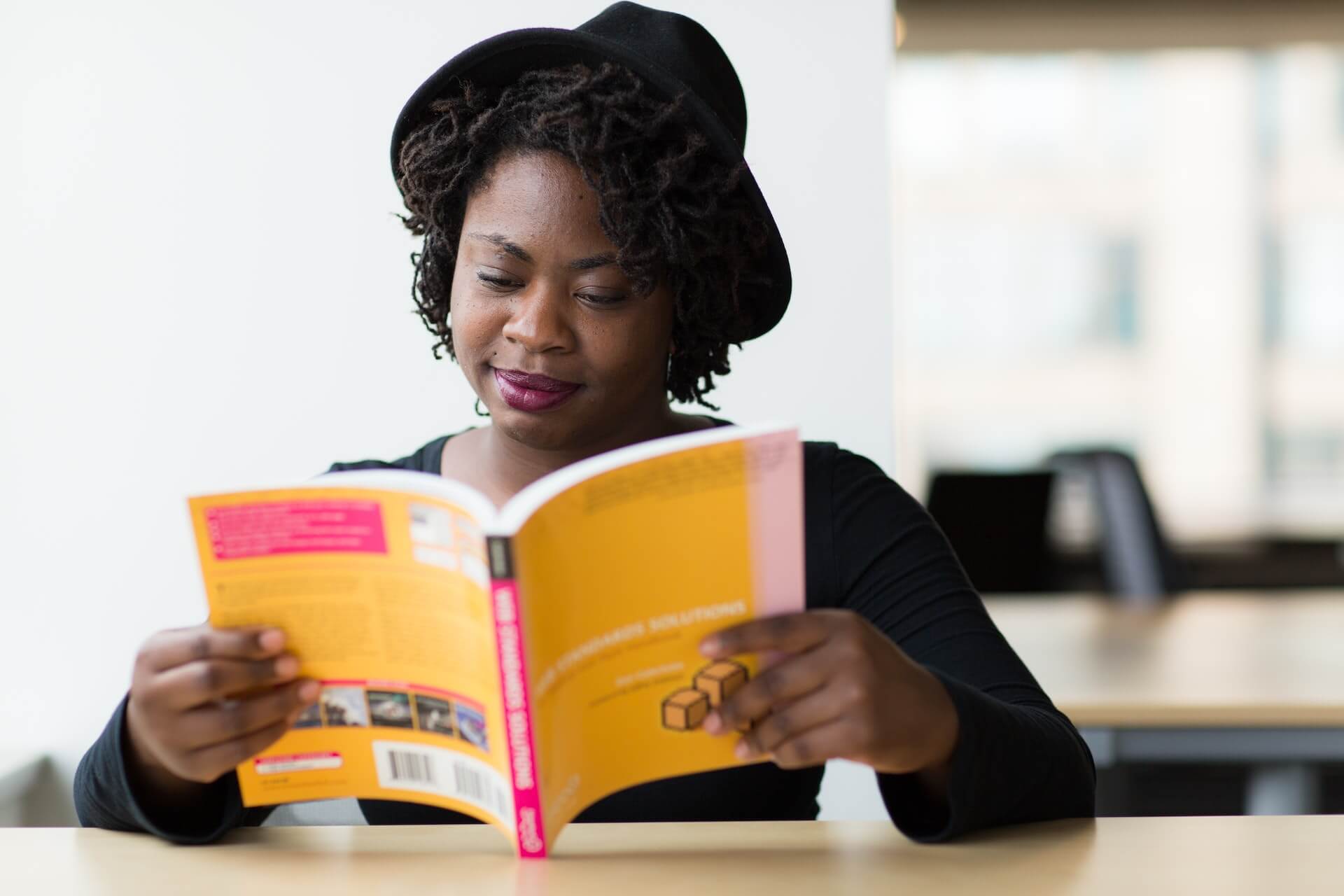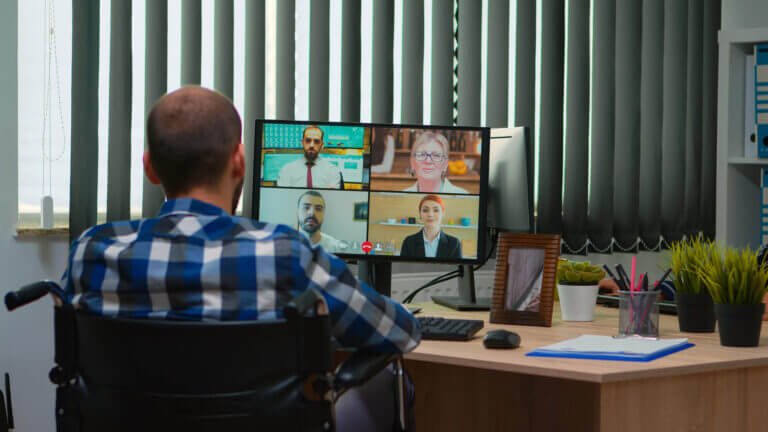Do you ever find yourself struggling to express your thoughts or ideas in a different language? Are you looking for ways to improve your vocabulary skills and become more fluent? Enhancing your vocabulary is an essential aspect of language learning, regardless of the language you are trying to learn. It can help you communicate more effectively and accurately, making it easier for others to understand what you are saying.
In this article, I will share some tips that have helped me improve my vocabulary in any language. These tips include reading widely and regularly, using flashcards, watching TV shows and movies, using vocabulary building apps, and practicing speaking and writing. Whether you’re a beginner or an advanced learner of a new language, these techniques can help you enhance your vocabulary skills and feel more confident when communicating with others.
Table of Contents
Key Takeaways
- Reading widely and regularly is essential for developing vocabulary skills
- Flashcards and vocabulary building apps can aid in memorization and recall of new words
- Watching TV shows/movies and practicing speaking and writing in the language can enhance fluency and communication skills
- Consistency and practice are key in effectively enhancing vocabulary in any language.
Read Widely and Regularly
If you really want to expand your vocabulary, you should make sure that you’re reading widely and regularly. Reading is one of the most effective ways to increase your knowledge of words in any language. It exposes you to a diverse range of writing styles and genres and provides context for how words can be used.
Reading helps you develop an intuitive sense for how words are used in everyday conversation, as well as more complex situations such as academic writing or technical documentation. The key is to read material that challenges your vocabulary skills but also interests you – this way, the process will be enjoyable rather than tedious. By incorporating reading into your daily routine, you’ll naturally start using new words in your own speech and writing without even realizing it. Now, let’s talk about another effective method for improving vocabulary: using flashcards!
Use Flashcards
Using flashcards can be an effective way to improve your lexicon in a new tongue. By creating flashcards with a word or phrase on one side and its translation on the other, you can train your brain to recall vocabulary at a moment’s notice. The process of flipping through cards and testing yourself helps to strengthen memory pathways, making it easier for you to remember words and phrases when speaking or writing.
Flashcards are also convenient because they can be used anytime, anywhere. You can carry them with you on-the-go, use them during moments of downtime, or incorporate them into your study routine. Not only do they help build your vocabulary, but they also provide a sense of accomplishment as you progress through each card set. With consistent practice, using flashcards can aid in expanding your linguistic knowledge and confidence in any language.
With an expanded vocabulary from using flashcards, watching tv shows and movies becomes even more enjoyable as understanding the language used becomes easier.
Watch TV Shows and Movies
Immerse yourself in the language by binge-watching TV shows and movies, and soon you’ll be able to understand every word like a native speaker. Here are some tips on how to make the most out of your viewing experience:
- Choose shows or movies with subtitles in both your native language and the language you’re trying to learn. This way, you can follow along with the dialogue while also picking up new vocabulary.
- Start with content that’s geared towards learners, such as educational programs or children’s cartoons. These tend to use simpler language and have clearer pronunciation.
- Pay attention to context clues when trying to decipher unfamiliar words. Look for visual cues, facial expressions, body language, and tone of voice.
- Take notes of any new words or phrases that catch your attention. You can pause the video and write them down or use an app like Google Translate to quickly look up their meanings.
- Practice active listening by repeating what you hear out loud. This will help improve your pronunciation and fluency.
Watching TV shows and movies is a fun and effective way to enhance your vocabulary skills in any language. However, don’t rely solely on this method – make sure to supplement it with regular practice using other resources such as vocabulary building apps.
Use Vocabulary Building Apps
To expand your lexicon, utilizing vocabulary building apps can be a helpful tool. These apps are designed to provide users with a range of interactive exercises that can help them learn new words and improve their understanding of the language. Many of these apps offer features like flashcards, quizzes, and games that make learning fun and engaging.
One popular vocabulary building app is Duolingo. This app offers courses in over 30 different languages and uses a gamified approach to teaching new words and phrases. Another useful app is Memrise, which offers a wide range of courses created by native speakers for learners of all levels. With these tools at your disposal, you can take control of your language learning journey and start expanding your vocabulary today!
By using these vocabulary building apps regularly, you can quickly improve your grasp on any language. However, it’s important to remember that simply memorizing new words won’t necessarily make you fluent in the language. In order to truly master a language, you’ll need to practice speaking and writing as well.
Practice Speaking and Writing
When it comes to becoming fluent in a language, there’s no substitute for practice. The more you speak and write in the language, the better you become at using it effectively. Don’t worry if your grammar isn’t perfect at first – mistakes are natural and can be corrected with time.
To practice speaking, find someone who speaks the language fluently and try having conversations with them. If you don’t have anyone to talk to, consider joining a language exchange group or finding a tutor online. When practicing writing, start small by writing short paragraphs or journal entries in the language every day. As you become more comfortable, challenge yourself by writing essays or longer pieces of prose. Remember that consistency is key – even just 10-15 minutes of practice each day can make a big difference over time.
Frequently Asked Questions
How do I know which words to focus on when building my vocabulary?
When building my vocabulary, I focus on words that are relevant to my personal and professional life. This includes industry-specific terminology, frequently used words in conversations with colleagues or clients, and words that describe my own experiences and emotions. I also pay attention to the context in which these words are used to better understand their meanings and usage. It’s important to prioritize learning new words based on their relevance to your daily life rather than trying to memorize a list of random vocabulary words. By doing this, you can build a strong foundation of useful vocabulary that will enhance your communication skills in any language.
Is it better to learn words individually or in phrases?
When it comes to learning new words, I have found that it is better to learn them in phrases rather than individually. This approach allows me to not only understand the meaning of the word but also its usage in a particular context. For instance, when learning a new language, I focus on common phrases used in everyday conversations. By doing so, I can pick up new vocabulary and use them appropriately without sounding like a robot reciting individual words. Additionally, learning phrases helps me remember the words better as they are associated with a specific situation or scenario. Overall, while individual word study has its benefits, incorporating phrases into your vocabulary-building efforts can be an effective way to enhance your understanding and retention of new words.
How do I stay motivated to continue learning new words?
Staying motivated to continue learning new words can be a challenge, but there are some things I do to keep myself on track. Firstly, I set achievable goals for myself that help me measure my progress and give me a sense of accomplishment. Secondly, I try to make learning fun by incorporating different methods such as playing games or watching TV shows in the language I’m trying to learn. Thirdly, I remind myself of the benefits that come with expanding my vocabulary like being able to communicate more effectively and understanding native speakers better. Finally, I surround myself with people who share my passion for language learning and who can provide support and encouragement when needed. By staying committed and finding ways to make learning enjoyable, it’s possible to stay motivated on the journey towards improving one’s vocabulary in any language.
Are there any specific techniques for remembering new words?
How can I remember new words? This is a common question for language learners, and the answer lies in active engagement with the word. One technique is to associate the new word with something you already know or have experienced. For example, if you are learning the word “apple” in a foreign language, you could associate it with your favorite type of apple or a memory of eating an apple. Another technique is repetition, whether it be through flashcards or daily use of the word in conversation or writing. Lastly, using context clues can also aid in remembering new words by understanding how they fit into a sentence or situation. By actively engaging with new words and using various techniques for retention, remembering them will become easier over time.
How can I incorporate new vocabulary into my daily life and conversations?
To incorporate new vocabulary into my daily life and conversations, I make a conscious effort to use the words I have learned whenever appropriate. This can be as simple as using a new word in an email or text message, or incorporating it into a conversation with friends or colleagues. It is also helpful to actively seek out opportunities to learn and practice new vocabulary, such as reading books, articles, and other materials on topics that interest me. Additionally, I find it useful to keep a running list of new words that I come across and their definitions, which allows me to review them regularly and reinforce my understanding. Overall, the key is to make language learning a consistent part of my daily routine by actively seeking out opportunities for growth and staying committed over time.
Conclusion
In conclusion, enhancing your vocabulary in any language requires consistent effort and a variety of techniques. Reading widely and regularly is undoubtedly the most effective way to expand one’s lexicon. The more you expose yourself to different genres, styles, and topics, the more words you will learn and remember.
Another helpful method is using flashcards, which are an excellent tool for memorization. By writing a word on one side and its meaning on the other, you can practice recall until it becomes effortless. Watching TV shows and movies with subtitles is also useful for picking up new words in context. Furthermore, vocabulary building apps such as Duolingo or Memrise provide interactive games that make learning fun.
Did you know that the average adult English speaker knows between 20,000-35,000 words? However impressive this number may be, it pales in comparison to Shakespeare’s vocabulary of approximately 66,534 unique words! While we may not all aspire to be literary geniuses like Shakespeare, expanding our vocabulary can greatly enhance our communication skills both professionally and personally.
So why not start today? With these helpful tips at your disposal, there’s no excuse not to take your language proficiency to the next level. Remember: practice makes perfect!








